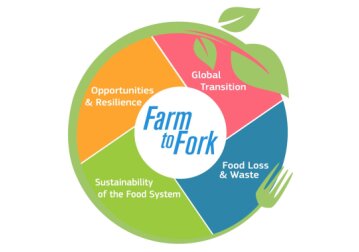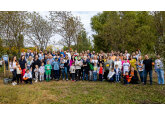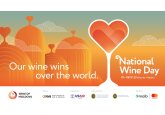
Georgia to host a key regional hybrid workshop on Sustainable Food Systems in Tbilisi
Brussels – 14 September 2023: Climate change, loss of biodiversity and the degradation of our lands and oceans are existential threats, which are fast resulting in soil depletion, extreme weather events and nutrition issues. In response to these threats, a hybrid regional workshop “Dialogues on Sustainable Food Systems: from production to consumption” will be organised by the European Union (EU) on 27-28 September 2023 in Tbilisi.
The EU-funded workshop will bring together key experts, policy makers as well as public stakeholders from the European Union, Georgia and its neighbouring countries to discuss “Sustainable and Resilient Food Systems”.
This dialogue will seek to exchange views in order to find common grounds, principles and actions, while identifying a way forward to further reinforce and amplify regional cooperation. In particular, discussions/exchanges will focus on how the EU and the countries in the EU Neighbourhood and Central Asia, namely Georgia, Ukraine, Moldova, Azerbaijan, Armenia, Albania, Bosnia and Herzegovina, Montenegro, North Macedonia, Kosovo, Serbia and Türkiye, can join forces to move towards sustainable and resilient food systems.
The workshop will be hosted by the European Commission, DG SANTÉ and will address two main themes:
• Soil health and sustainable use of fertilizers: This session will discuss the importance of soil health for food production and the environment. Participants will explore ways to improve soil health and reduce the use of fertilizers.
• Food loss, waste, and sustainable consumption: This session will focus on the need to reduce food loss and waste. Participants will discuss ways to improve food distribution and consumption patterns.
The discussions will aim to help the multiple stakeholders of the food systems to identify strategies, policies and practices that will guide them to different levels of desirable change. Presentations from speakers from Georgia, Ukraine, Moldova, Azerbaijan, Armenia, Albania, Bosnia and Herzegovina, Montenegro, North Macedonia, Kosovo, Serbia and Türkiye will be followed by a panel discussion on existing or future synergies between approaches that could pave the way for collaboration, including how this collaboration could support the transition at a global level.
As part of its Green Deal, The Farm to Fork Strategy (the Farm to Fork Strategy ) is a significant step forward for the EU in its efforts to achieve a sustainable food system. It is an ambitious plan that will require significant investment and coordination. However, with successful, the strategy could have a major impact on the way we produce, consume, and waste food in the EU and also for the protection of human and planetary health.
-------------------------------
Background information:
The adjustment of food systems, which were also documented and called upon in the UN Food Systems Summit in September 2021, needs to take into account the various contextual differences across the planet regarding cross cutting issues such as land degradation or food loss that ultimately affect how food is produced, processed, transported and consumed.
The question of sustainable food systems goes beyond the means of production and is also subjected to several nutrition challenges such as undernutrition and hunger. These challenges persist while new and multiple forms of malnutrition rise. In particular, food-borne non-communicable diseases such as cancer, obesity, and cardiovascular conditions put pressure on people and health systems.
Although global awareness grows, commitments are made and some solutions are designed and implemented, there is still a need for rapid and firmer action to foster a worldwide cooperation and coordination.
The series of regional and country-focused workshops is funded by the European Commission’s Service for Foreign Policy Instruments (FPI) under the project supporting the Farm to Fork Strategy (F2F), which is the EU plan to contribute to resolving food challenges, and, to this end, proposes pathways for change towards sustainability that provides environmental, health, social and economic benefits.
More details of the European Commission’s Farm to Fork strategy are available here and on Social Media channels with the tags:
#EUFarm2Fork
@EU_FPI
#EUForeignPolicy
###
For more information, please contact:
“F2F – Farm to Fork” Project Secretariat (General event organisation):
Philippe van Maldeghem - farm2forkdialogue@candm.sk







